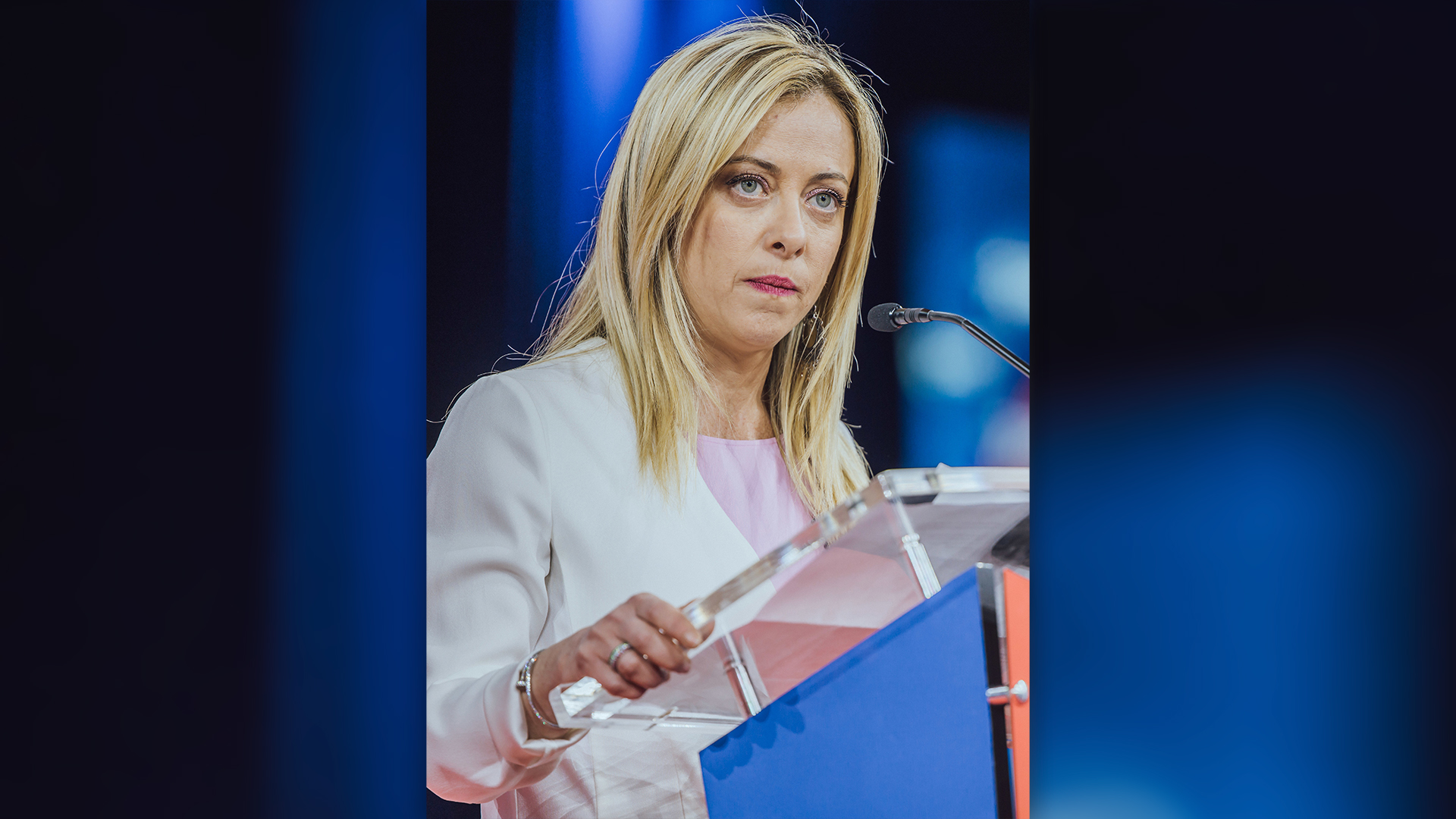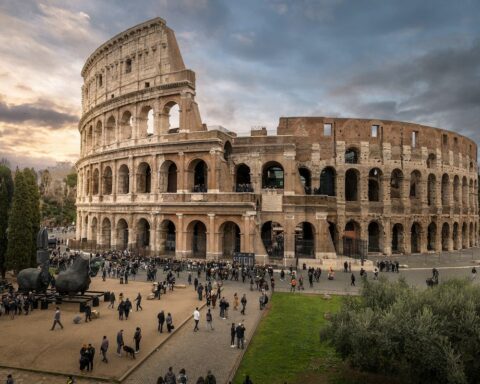ROME (Parliament Politics Magazine) – The far-right leader Giorgia Meloni has announced victory in the Italian election and is on her way to become first female prime minister of the country.
The most right-wing government in Italy since World War II is anticipated to be formed by Ms. Meloni.
Europe will be alarmed by this since Italy is the third-largest economy in the EU.
Ms. Meloni gave her assurances to the public that her party, Brothers of Italy, will “govern for everyone” and not betray their confidence when speaking after the vote.
Ms Meloni was seen holding up a poster that read “Thank you Italy”. She told reporters in Rome that the Italians had sent a clear message in a right-wing government’s favour led by the Brothers of Italy.
According to preliminary figures, she will defeat her closest opponent, the centre-left candidate Enrico Letta, with 26% of the vote. The far-right victory, Mr. Letta told reporters on Monday, was a “sad day for Italy and Europe,” but his party will offer a “strong and intransigent opposition.”
With almost 44% of the vote, Ms. Meloni’s right-wing coalition, of which the far-right League’s Matteo Salvini and former prime minister Silvio Berlusconi’s centre-right Forza Italia, will gain control of the Chamber of Deputies and the Senate.
Giorgia Meloni looks certain to become the PM, but Sergio Mattarella, the president, must nominate her, and it is not very likely to happen before late October.
She has made a concerted effort to soften her image, highlighting her support for Ukraine and tempering anti-EU rhetoric, but she still heads a party that has its roots in a post-war movement that emerged from fascist of dictator Benito Mussolini.
“Yes to the natural family, no to the LGBT lobby, yes to sexual identity, no to gender ideology… no to Islamist violence, yes to secure borders, no to mass migration… no to big international finance… no to the bureaucrats of Brussels,” she proclaimed in a raucous speech to Spain’s far-right Vox party earlier this year.
With 26% of the vote, the centre-left coalition fared poorly compared to the right, and Democratic Party representative Debora Serracchiani claimed that the right had the majority in the country, only in the parliament.
In reality, the left was unable to put together a strong opposition with other parties when Italy’s 18-month unity government crumbled, and officials were pessimistic even before the election.
Turnout decreased by nine points from 2018 to a record-low 63.91%. Particularly low voting rates were observed in Sicily and other southern regions.
Her rhetoric on the EU places her close to Viktor Orban, the nationalist leader of Hungary. Italy is a member of Nato and the founding father of the European Union.
Both of her allies had close links to Russia. While Mr. Salvini has questioned the validity of Western sanctions against Moscow, Mr. Berlusconi, 85, asserted last week that Vladimir Putin was coerced into invading Ukraine.
Ms. Meloni contends that the energy crisis has transformed the situation and wants to rethink Italian changes that were agreed upon with the EU in exchange for around €200 billion (£178 billion) in post-Covid recovery grants and loans.
The next administration in Italy, which is already the second-most indebted nation in the eurozone, will likely confront a number of significant problems, according to Prof. Leila Simona Talani of King’s College London.
Although the composition of the Chamber and Senate are not yet known, a YouTrend projection indicated that the right-wing alliance may have as many as 238 of the lower house’s 400 seats and 112 of the upper house’s 200 seats.
According to projections, the centre left will hold 40 in the Senate and 78 seats in the Chamber.






